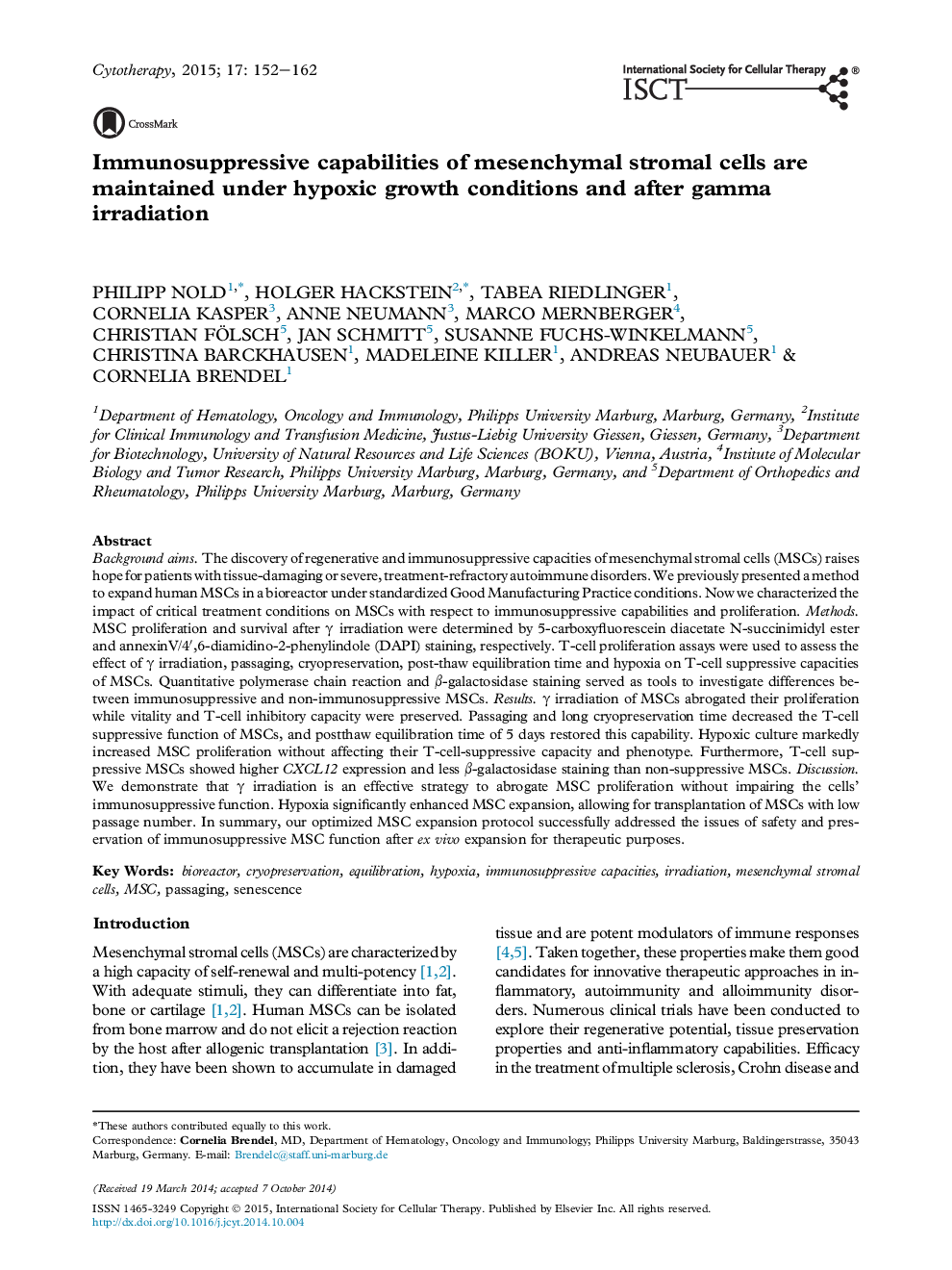| Article ID | Journal | Published Year | Pages | File Type |
|---|---|---|---|---|
| 2171822 | Cytotherapy | 2015 | 11 Pages |
Background aimsThe discovery of regenerative and immunosuppressive capacities of mesenchymal stromal cells (MSCs) raises hope for patients with tissue-damaging or severe, treatment-refractory autoimmune disorders. We previously presented a method to expand human MSCs in a bioreactor under standardized Good Manufacturing Practice conditions. Now we characterized the impact of critical treatment conditions on MSCs with respect to immunosuppressive capabilities and proliferation.MethodsMSC proliferation and survival after γ irradiation were determined by 5-carboxyfluorescein diacetate N-succinimidyl ester and annexinV/4′,6-diamidino-2-phenylindole (DAPI) staining, respectively. T-cell proliferation assays were used to assess the effect of γ irradiation, passaging, cryopreservation, post-thaw equilibration time and hypoxia on T-cell suppressive capacities of MSCs. Quantitative polymerase chain reaction and β-galactosidase staining served as tools to investigate differences between immunosuppressive and non-immunosuppressive MSCs.Resultsγ irradiation of MSCs abrogated their proliferation while vitality and T-cell inhibitory capacity were preserved. Passaging and long cryopreservation time decreased the T-cell suppressive function of MSCs, and postthaw equilibration time of 5 days restored this capability. Hypoxic culture markedly increased MSC proliferation without affecting their T-cell-suppressive capacity and phenotype. Furthermore, T-cell suppressive MSCs showed higher CXCL12 expression and less β-galactosidase staining than non-suppressive MSCs.DiscussionWe demonstrate that γ irradiation is an effective strategy to abrogate MSC proliferation without impairing the cells' immunosuppressive function. Hypoxia significantly enhanced MSC expansion, allowing for transplantation of MSCs with low passage number. In summary, our optimized MSC expansion protocol successfully addressed the issues of safety and preservation of immunosuppressive MSC function after ex vivo expansion for therapeutic purposes.
